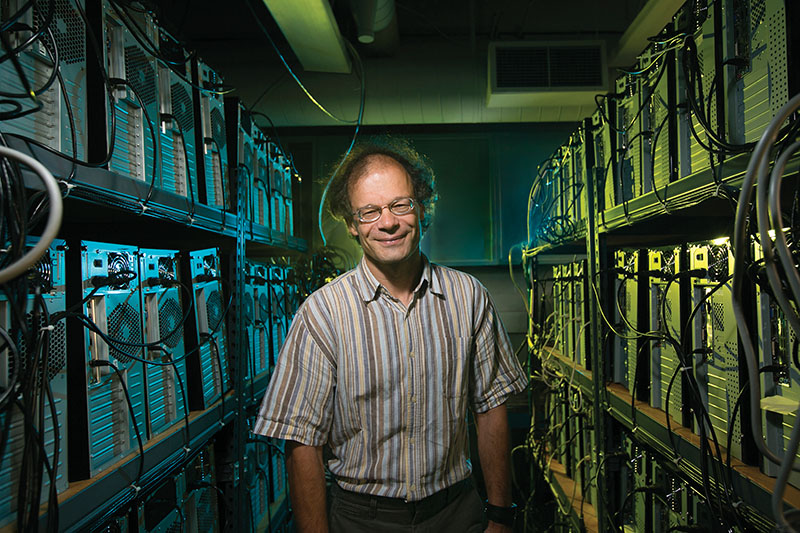Super-cool superconductors
Posted by magazine

Physics professor Thomas Vojta with his super computer Pegasus II in the basement of the physics building. Sam O’Keefe/Missouri S&T
By studying how materials change at ultra-low temperatures, theoretical physicist Thomas Vojta hopes to discover new states of matter.
Funded by a $229,000 grant from the National Science Foundation, Vojta, a professor of physics, is researching how slight alterations in the chemical composition of materials can dramatically change their properties.
“My research looks at quantum phase transitions — transformations of materials occurring near absolute zero — and how they take place,” says Vojta. “In connection with these transformations, exotic new quantum states of matter can appear — for example, superconductors that can carry electric current without any losses.”
These transitions are “similar to the changes that occur when you boil water,” says Vojta. “These abrupt transformations directly affect superconductivity, and we want to find out exactly how and why.”
Vojta uses a supercomputer he built with his colleagues and students to model these quantum phase transitions and to compute various materials’ properties. Called the Pegasus IV High-Performance Computing Cluster, the custom-built PC cluster is made up of 156 quad-core computer nodes that are used for computational research in condensed matter and statistical physics.